Last Friday, through the British Women's Association we visited APON (http://www.apon-bd.org)
APON is a drug and alcohol rehabilitation organization. Somehow when you are in a developing (Muslim) country, it would be easy to assume that drugs and alcohol are too expensive per se for there to be a problem beyond some obvious cases. There are of course lots of people who, as elsewhere in the world want to feel differently and to escape, and choose drugs and alcohol to do that.
APONGAON is a therapeutic village outside of Dhaka in Manikganj District. APON has centres in Dhaka too, but the BWA had helped funding some mattresses and bunk beds, so this is where we came.
APON is led by the energetic, charismatic Brother Ronald Drahozal, C.S.C. – a U.S. member of the Congregation of Holy Cross. He has been in Bangladesh for over fifty years now, and is passionate about his mission to help change the behaviour of those with addiction.
From our perspective we were immediately aware of the large photos and paintings of Br Ronald which are on display, it feels a little like cult worship...but it was just another way in which the cultural differences here make themselves apparent - gut feelings have to make way to seeing things through anothers eyes.
It was hard seeing the young boys - some as young as five. We asked questions about the drugs that they had taken, hands up who has smoked cigarettes - all hands are raised with smiles like they are answering questions proudly, hands up who has used alcohol, hands up who has used glue, hands up who has used Phensidyl (cough medicine containing codeine), hands up who has used ganja, who has used yaba (yaba is a kind of amphetamine - increasingly popular and problematic in Bangladesh http://bdnews24.com/health/2014/04/27/the-great-yaba-epidemic) who has used heroin.
Each time there were less hands up, but hands nonetheless.
Street kids often cut themselves and apply drugs directly to their blood, they then share their cuts with friends. Br Ronald said that although HIV is not present in this population, he is fearful that once it arrives it will spread rapidly.
There is a very practical reason that the rooms are not yet in use. Lice. There a lice problem at the center at the moment, and Br Ronald would like to prevent them hitching up to the new dorms and beds. It is monsoon at the moment, so its not possible to wash and dry everything properly. So they will wait until they can.
The football / cricket field is a draw for some of the street boys. There is also education, skills workshops, decent food - but a safe place to play can seal the deal
The women's morning meeting - there are around 25 women who are in treatment. They were far more reticent than the boys about what had led them to APON. It was also easier for me to see that there are mixed groups regarding social class throughout APON. The wealthy and middle class also use the facilities here, since there are few other choices in Bangladesh.
I came away from the visit with mixed emotions. Drug and alcohol rehabilitation is difficult under any circumstances, and the cultural, economic and social conditions here make it even more so. Great work by Br Ronald - but he is now in his 70s, what will the future hold?
An interesting (and more informative) article can be found here
http://bangladeshcanadaandbeyond.blogspot.com/2013/09/brother-ronald-drahozal-csc-through.html
APON is a drug and alcohol rehabilitation organization. Somehow when you are in a developing (Muslim) country, it would be easy to assume that drugs and alcohol are too expensive per se for there to be a problem beyond some obvious cases. There are of course lots of people who, as elsewhere in the world want to feel differently and to escape, and choose drugs and alcohol to do that.
APONGAON is a therapeutic village outside of Dhaka in Manikganj District. APON has centres in Dhaka too, but the BWA had helped funding some mattresses and bunk beds, so this is where we came.
 |
| the grand plan |
APON is led by the energetic, charismatic Brother Ronald Drahozal, C.S.C. – a U.S. member of the Congregation of Holy Cross. He has been in Bangladesh for over fifty years now, and is passionate about his mission to help change the behaviour of those with addiction.
From our perspective we were immediately aware of the large photos and paintings of Br Ronald which are on display, it feels a little like cult worship...but it was just another way in which the cultural differences here make themselves apparent - gut feelings have to make way to seeing things through anothers eyes.
 |
| morning meeting for the men |
 |
| morning meeting for the boys |
It was hard seeing the young boys - some as young as five. We asked questions about the drugs that they had taken, hands up who has smoked cigarettes - all hands are raised with smiles like they are answering questions proudly, hands up who has used alcohol, hands up who has used glue, hands up who has used Phensidyl (cough medicine containing codeine), hands up who has used ganja, who has used yaba (yaba is a kind of amphetamine - increasingly popular and problematic in Bangladesh http://bdnews24.com/health/2014/04/27/the-great-yaba-epidemic) who has used heroin.
Each time there were less hands up, but hands nonetheless.
Street kids often cut themselves and apply drugs directly to their blood, they then share their cuts with friends. Br Ronald said that although HIV is not present in this population, he is fearful that once it arrives it will spread rapidly.
A new floor has been built on the main building, to function as dormitories for the boys and the men. At present many spaces are multifunctional, classrooms during the day, and dorms at night.
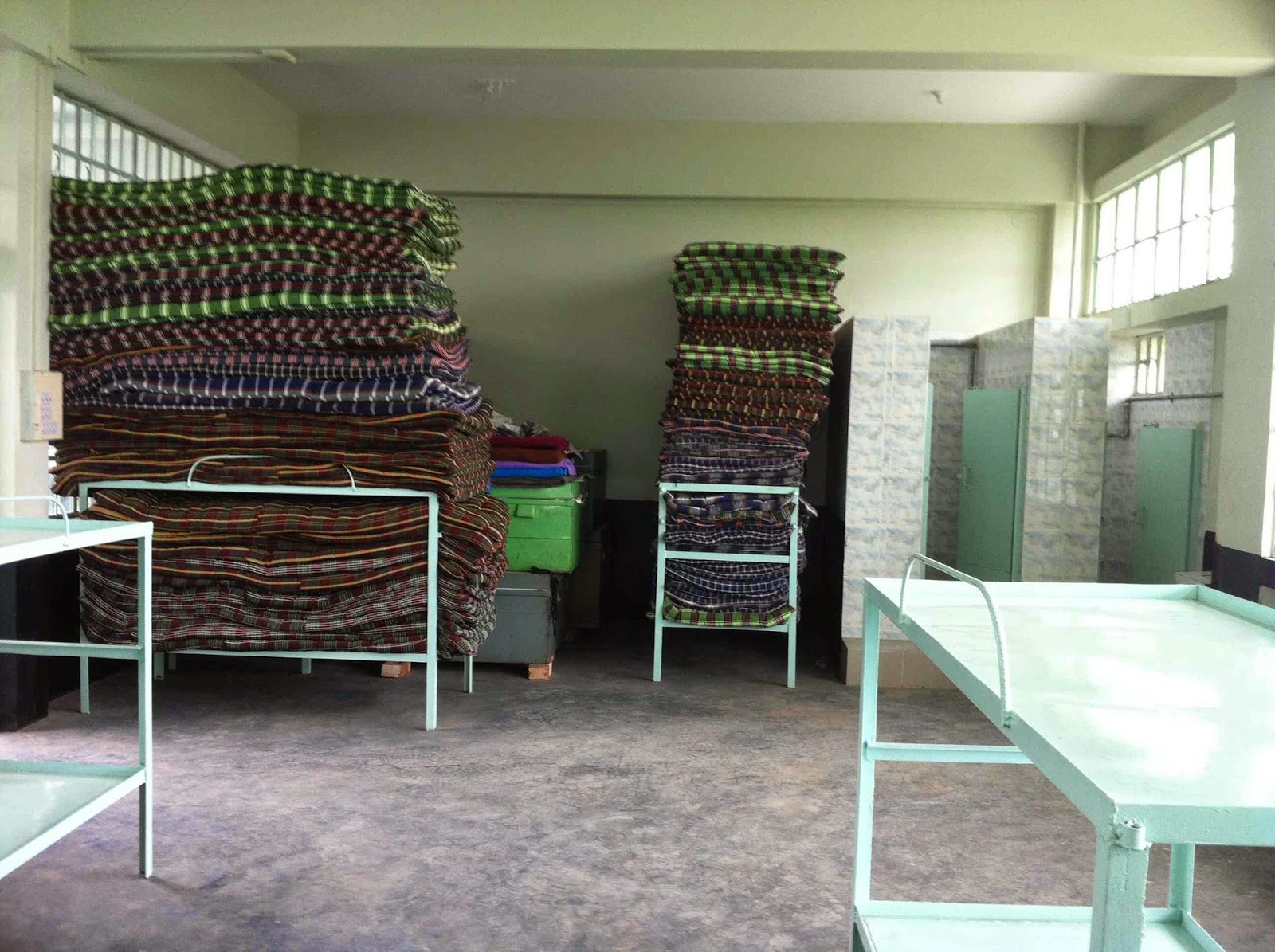 |
| mattresses |
There is a very practical reason that the rooms are not yet in use. Lice. There a lice problem at the center at the moment, and Br Ronald would like to prevent them hitching up to the new dorms and beds. It is monsoon at the moment, so its not possible to wash and dry everything properly. So they will wait until they can.
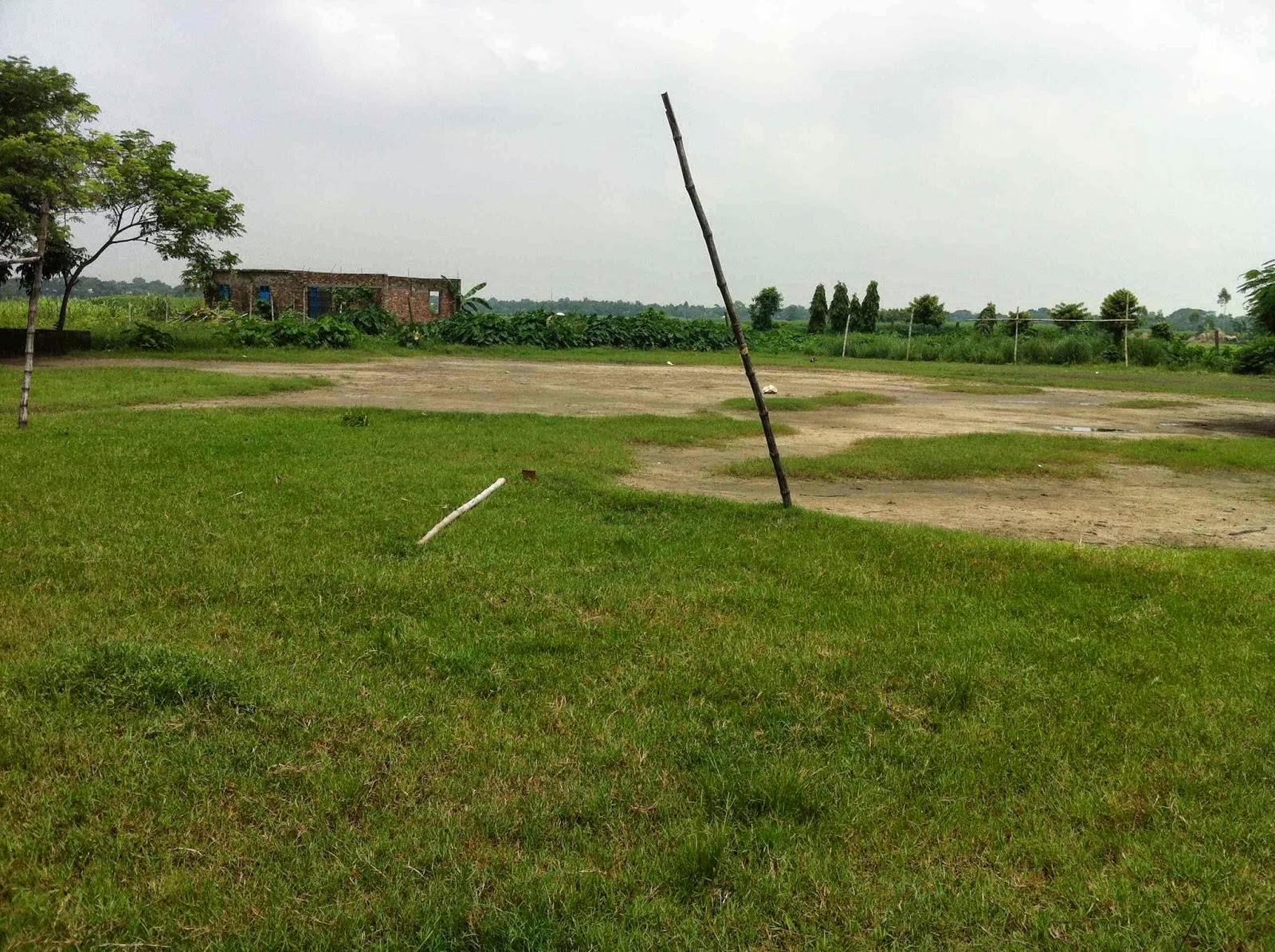 |
| Football / cricket field |
 |
| extension to the ladies building |
The women's morning meeting - there are around 25 women who are in treatment. They were far more reticent than the boys about what had led them to APON. It was also easier for me to see that there are mixed groups regarding social class throughout APON. The wealthy and middle class also use the facilities here, since there are few other choices in Bangladesh.
I came away from the visit with mixed emotions. Drug and alcohol rehabilitation is difficult under any circumstances, and the cultural, economic and social conditions here make it even more so. Great work by Br Ronald - but he is now in his 70s, what will the future hold?
http://bangladeshcanadaandbeyond.blogspot.com/2013/09/brother-ronald-drahozal-csc-through.html

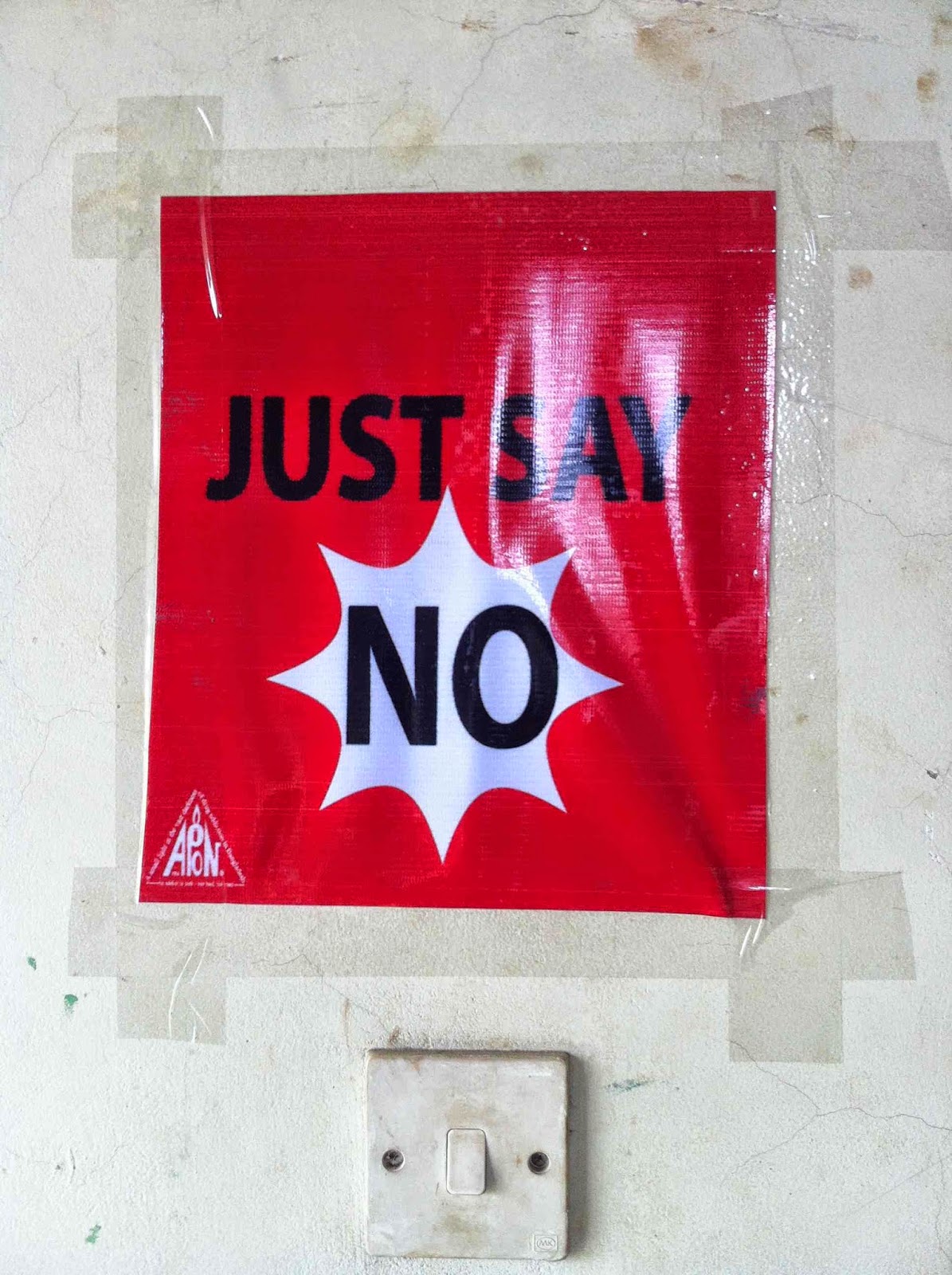









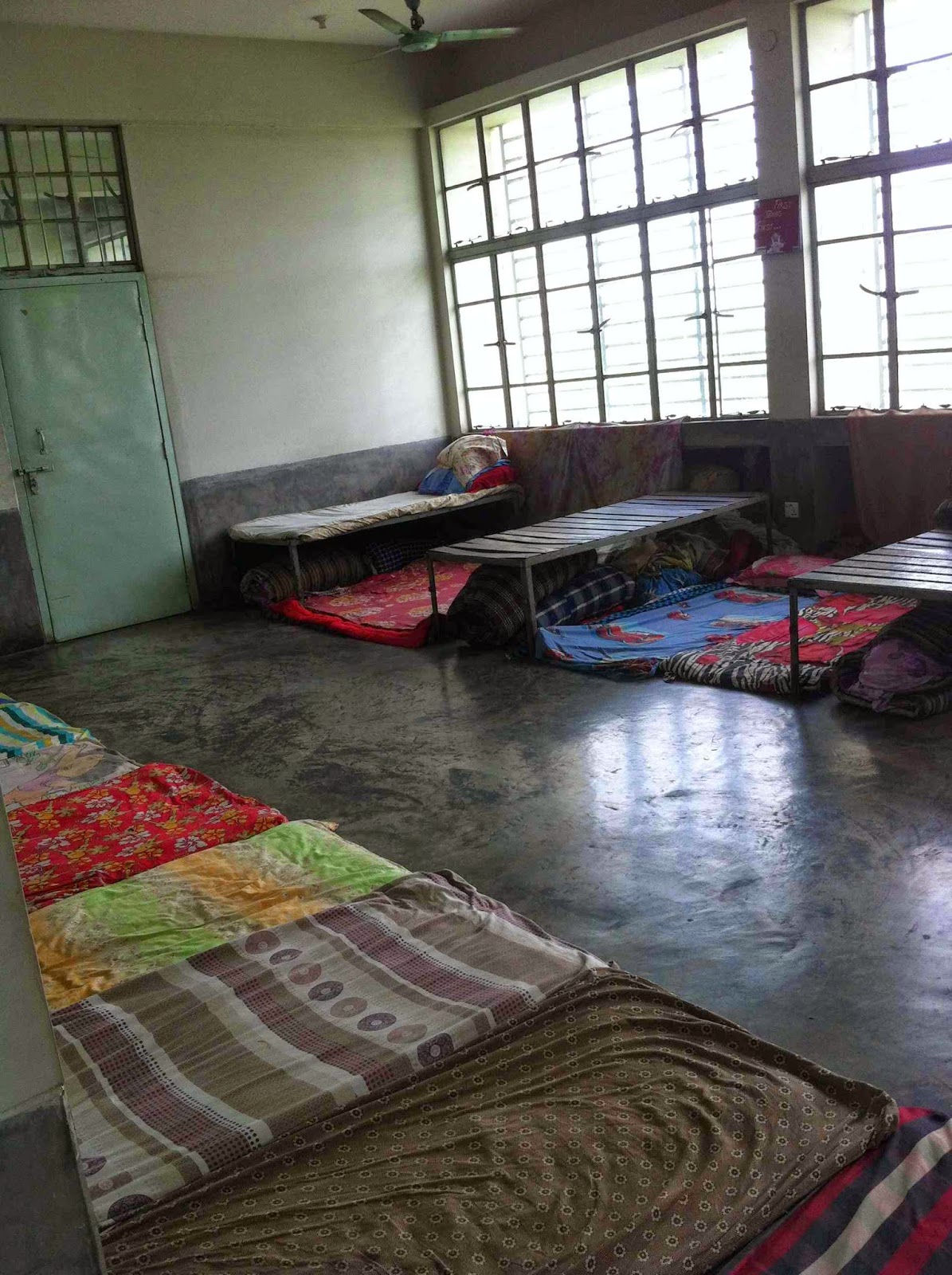




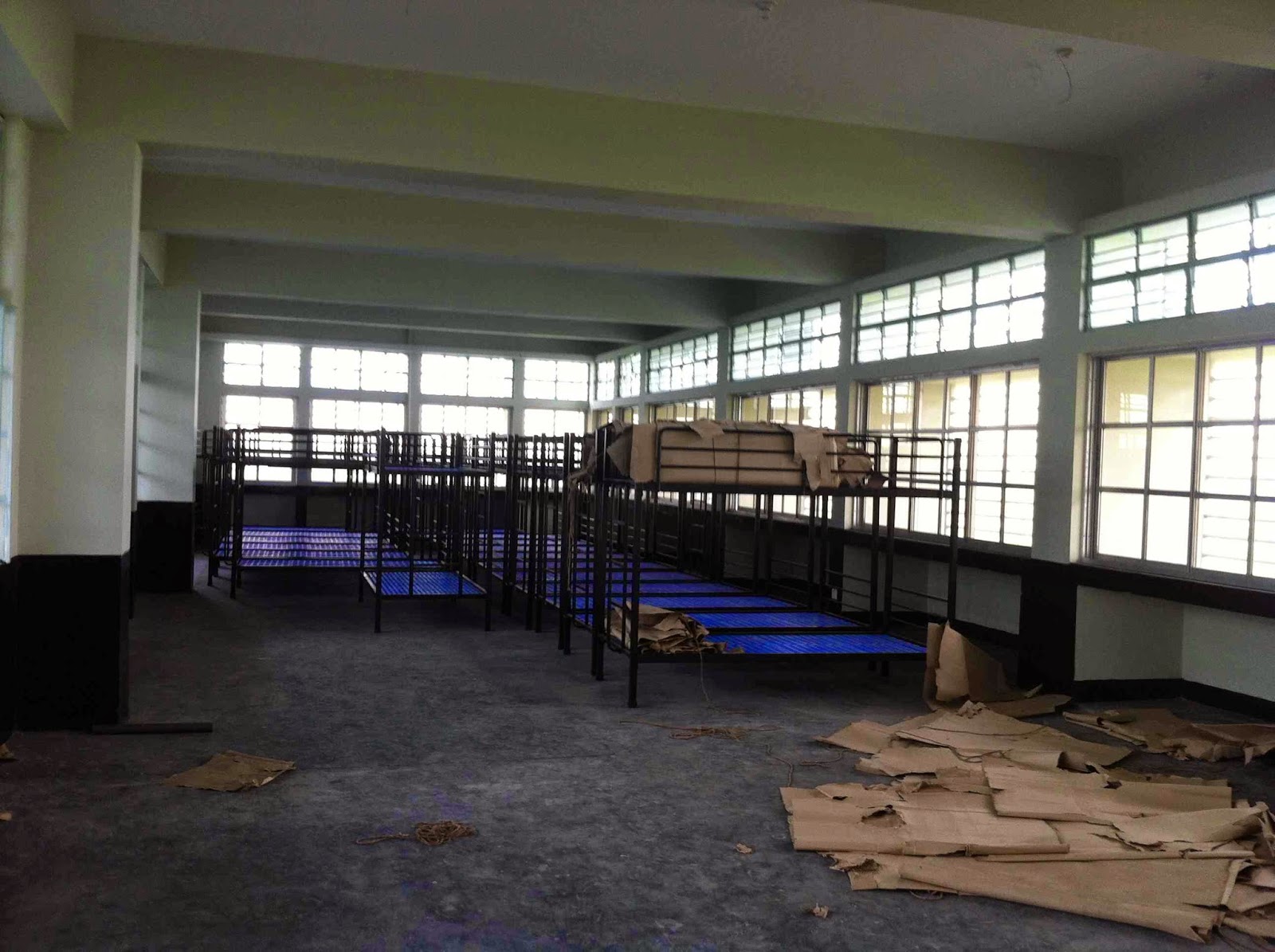






2 comments:
Interesting..... Sad..... Hopeful..... Weird too...
I agree what happens when the brother 'moves on'...
Makes you think, so many boys:(
Post a Comment